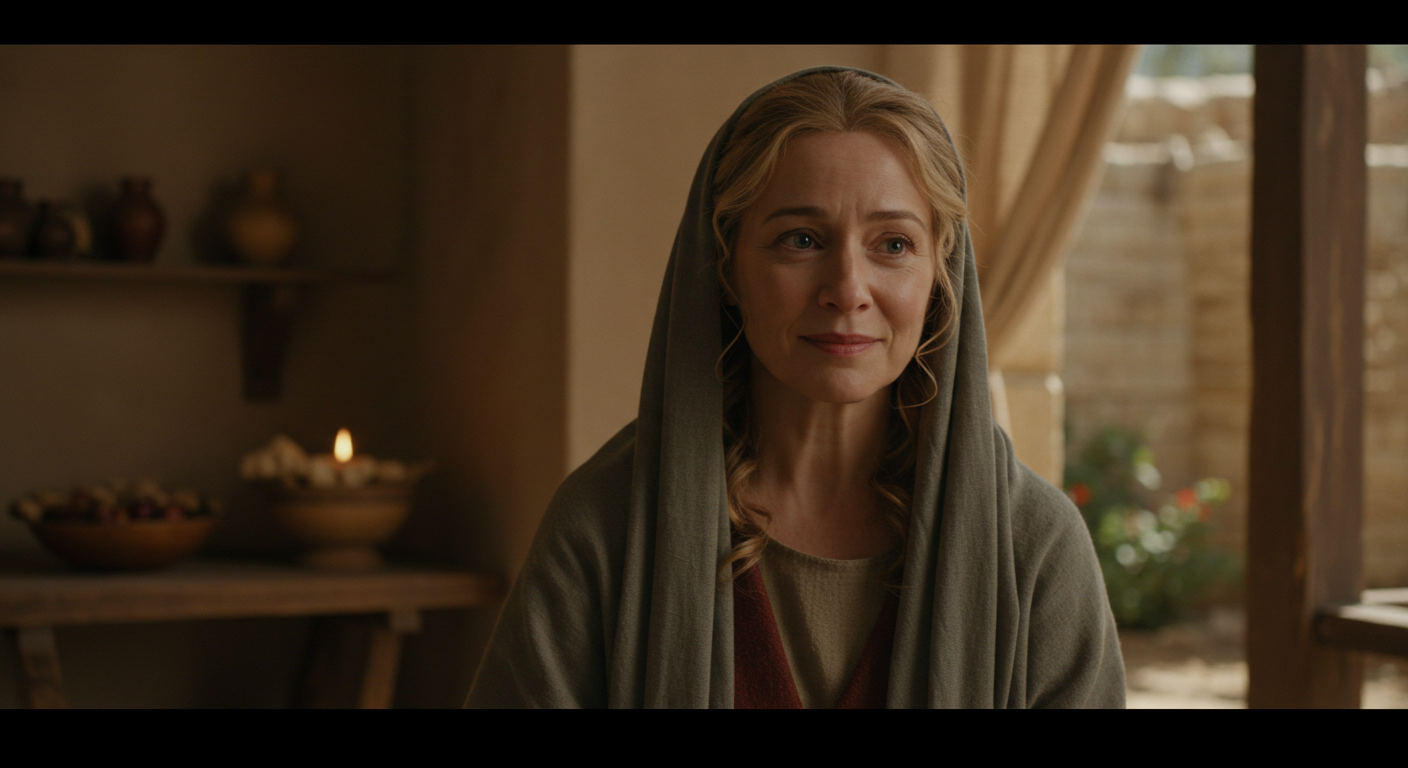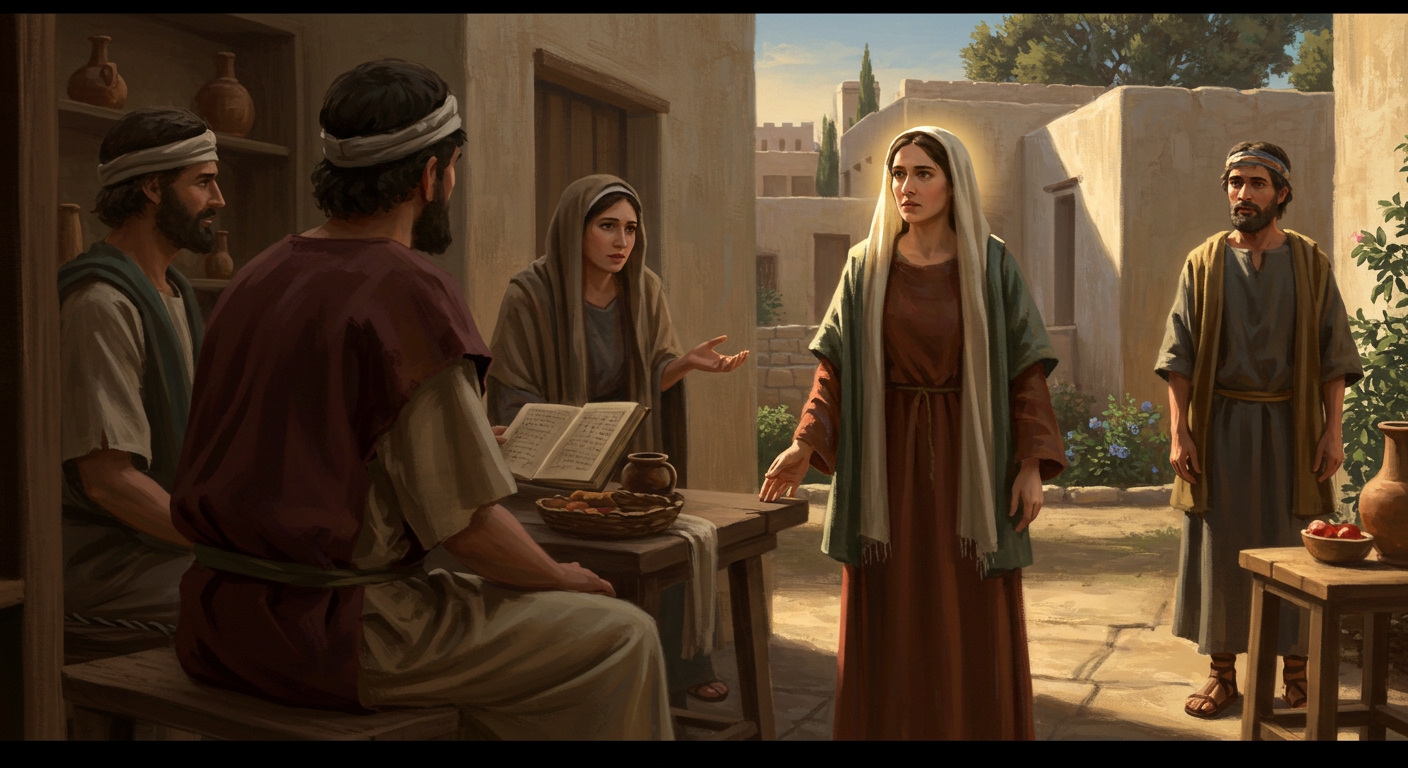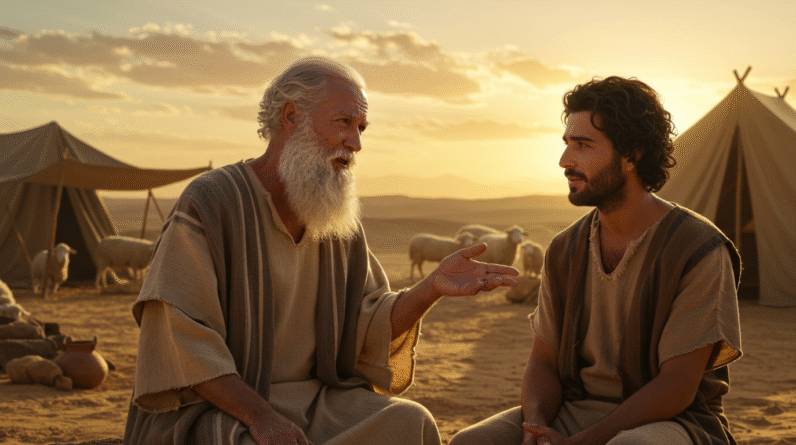Explore Mary, Mark’s mother, in Acts: a quiet beacon of early Christian courage and hospitality. Learn timeless lessons on faith in the community. Discover her impact.

Exploring Mary, the Mother of Mark, in Acts: A Key Figure in Early Christianity
The story of early Christianity unfolds with the richness of faith, courage, and community found in its pages. Among its pivotal figures stands Mary, the mother of Mark, who appears briefly yet significantly in the Book of Acts. Through her hospitality and faithfulness, Mary provides a unique glimpse into the lives of early Christians and the burgeoning church, offering lessons that resonate across centuries.
Introduction
Mary, the mother of Mark, emerges as a quiet yet impactful pillar of the early Christian community. Her home, described as a place of prayer and refuge, plays a crucial role in one of the New Testament’s most dramatic events—the miraculous release of the Apostle Peter from prison. This setting is not merely a backdrop; it is a testament to her faith and crucial role within the nascent church. Mary’s presence in the biblical narrative, though limited, is imbued with significance, illustrating the power of hospitality, courage, and unwavering belief in God’s providence.
Her Story in the Bible
The Book of Acts introduces Mary in a gripping narrative. After King Herod arrested Peter, planning to put him on public trial, the church was fervently praying for Peter’s safety. In Acts 12:12, it is detailed how Peter, after being miraculously freed by an angel, heads straight to Mary’s house. This reference marks the only specific mention of Mary in the biblical text, yet it speaks volumes of her standing among early believers. Her home was recognized as a central meeting place for Christians of the time, indicating her deep commitment to the fledgling church and her son’s ministry.
The narrative surrounding Mary’s involvement is brief but poignant. Hosting the church in her home during a time of intense persecution reflects the courage and dedication she possessed. Her home wasn’t merely a gathering place; it was a sanctuary where believers found solace, support, and spiritual nourishment. The setting underscores Mary’s significant contribution to the spiritual and communal life of early Christians. It also highlights her apparent availability and willingness to leverage her resources and household for the advancement of the Christian mission, a mission fraught with threat and uncertainty.
Mary’s story intertwines with that of others, like Peter, who directly benefit from her hospitality. The scene in Acts reveals a moment of communal triumph, juxtaposing the darkness of imprisonment and the radiant hope of divine intervention. Mary’s home becomes a microcosm of the greater church’s faith journey—a journey marked by prayer, resilience, and divine surprises.
Lessons from Her Life
From Mary’s life, we learn invaluable lessons about faith, hospitality, and the quiet strength that often goes unnoticed but is crucial for community and spiritual growth. Her life inspires three core lessons:
- The Power of Hospitality: Mary’s home was a haven of hope and healing. By opening her doors to the faith community, she demonstrated the heart of hospitality, a virtue that remains critical today. Through her, we see how hospitality can become a powerful ministry, fostering relationships and inspiring collective strength.
- Courage Under Persecution: Her willingness to host the church amid persecution is a testament to her bravery. It reminds us of the importance of standing firm in our beliefs, despite the challenges we may face, encouraging modern readers to hold fast to their convictions and provide support to those in need.
- Faith in Action: Mary’s actions remind us that faith is not passive. It manifests in our willingness to actively participate in God’s work. Her enduring faith was expressed through tangible, if discreet, actions that played a critical role in the growth and sustenance of the early church.
Connection to Today’s World
Mary’s story shines a light on issues and opportunities relevant to contemporary life, especially within the themes of hospitality, community, and resistance in the face of adversity. In a modern world characterized by division and isolation, her example challenges us to open our homes and hearts to others, fostering environments where spiritual and emotional support can flourish.
Moreover, Mary’s story challenges today’s readers to engage with their communities, serving the needs of others despite potential risks. Her courage inspires us to build spaces reflecting inclusivity and support, emphasizing the power of united prayer and unwavering faith. In a societal climate often hostile to different beliefs, her quiet yet resolute spirit serves as an encouraging example of living a life marked by faith and action.
Key Bible Verse
“And Peter knocked at the door of the gate; a servant girl named Rhoda came to answer.” – Acts 12:13
This verse encapsulates the dramatic scene of God answering prayers during a moment of dire need and highlights the communal aspect of faith. It emphasizes the impact of home as a sacred space of support and the miraculous crossing of hope into reality within domestic walls.
Thought-Provoking Question
In what ways can you foster hospitality and courage in your community, inspired by Mary’s example of unwavering faith and action?
Additional Reflections: Historical and Cultural Context
In the historical and cultural context of the early church, hosting a gathering place for Christians was a profound act of faith. Mary’s home reflected the significance placed on communal worship and mutual support amidst the challenges faced by early believers. Understanding the risks involved, Mary’s actions demonstrate an admirable commitment to the burgeoning Christian community, one marked by passion and selfless devotion.
The socio-political climate during this era was particularly hostile towards Christians, with significant persecution under Roman rule. This paints a vivid picture of Mary’s courage and underscores the vital role played by female figures in supporting the community’s spiritual and social fabric. Her willingness to put her safety at risk for the sake of the church’s growth is a testament to her devotion and a tribute to the numerous unsung heroines that have shaped faith communities throughout history.

Embracing a Life of Faithful Action
Mary, the mother of Mark, represents a link between the divine narrative and our daily lives—a touching reminder of how simple acts of faith and hospitality contribute significantly to larger spiritual movements. Her example encourages us to actively participate in the world with faith-fueled courage and an open heart.
As you reflect on her story, consider how you might embrace her spirit of hospitality and faith within your own life. Let her example embolden you to forge connections, provide refuge, and pursue God’s mission with fervency and grace, tapping into the transformative power of communal support and divine purpose.







